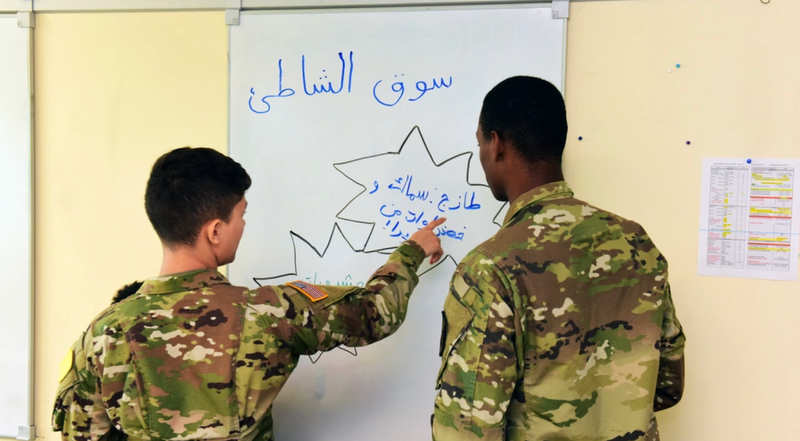
Remember the last scene of "Charlie Wilson's War," the film about the controversial Senator Wilson who helped spearhead American support for the mujahideen's fight against the Soviet Union in Afghanistan during the 1980s? When the Soviets finally withdraw to Russia, Wilson (played by Tom Hanks) seeks American aid and support for the Afghan people, only to find that Washington D.C. had no interest in Afghanistan beyond knocking the Soviets down a peg or two.
With the Afghan-Soviet War over, America quickly lost its interest in Afghanistan for twenty years, until the 9/11 attacks. When the CIA and Special Forces soldiers invaded Afghanistan, "we had not one Pashto speaker in 2001 that I remember," said Col. Justin Sapp who was the first Green Beret in Afghanistan with the CIA's Team Alpha paramilitary team.
"I don't think anyone wearing a uniform spoke Pashto," Sapp told Connecting Vets.
Today, the same short-sightedness is being shown once again Sapp believes, as the Defense Language Institute (DLI) in Monterey, California begins the process of shuttering the program that trains new Pashto linguistics specialists for the Department of Defense.
The last class of Pashto speakers will graduate DLI in November of 2023, and sustainment training will be provided for current Pashto speakers in the military but new ones will no longer be trained, a public affairs officer for DLI confirmed.
"The uniformed military Services determined that, due to changes in U.S. strategic emphasis, there was no longer a need for a large number of Pashto linguists, and the current number in the force was sufficient for the requirement," DLI public affairs explained to Connecting Vets.
Pashto is the official language of Afghanistan but is also spoken widely in Northern Pakistan by tens of millions of people. It now appears that America's strategic emphasis is on other parts of the world since the U.S. military withdrew from Afghanistan in 2021.
"Pashto is the hardest of the Afghan languages," Sapp said. "My problem with the way government does things is that it takes a very binary approach to things like all or nothing, all in or off. That doesn't really make sense. We had some people who spoke Pashto in the 80s and then the Soviets left Afghanistan and we literally shuttered that program."
Understanding that America is less focused on Afghanistan today, Sapp tells Connecting Vets that it would be more prudent to dwindle the program down and graduate small numbers of students a year rather than do away with it entirely.
"The Army will say that they forecast these things but I don't think they do it well for languages, that management bit," he said. "They can shrink it down but they shouldn't just turn the lights off because it's bad policy, because you just don't know what's going to happen."
The potential for another crisis that brings about U.S. intervention in the region is always a possibility and one that people like Sapp don't want to be in again where no one in the military speaks the local language.
"Lets not just make this an in-extremis effort to meet a surge. We always react to language requirements," Sapp explained. "We're not proactive, we're reactive because you cannot create language capability overnight."
Want to get more connected to the stories and resources Connecting Vets has to offer? Click here to sign up for our weekly newsletter.
Reach Jack Murphy: jack@connectingvets.com or @JackMurphyRGR.


